Breakthrough for Indian lesbian forced into a mental institution by her family
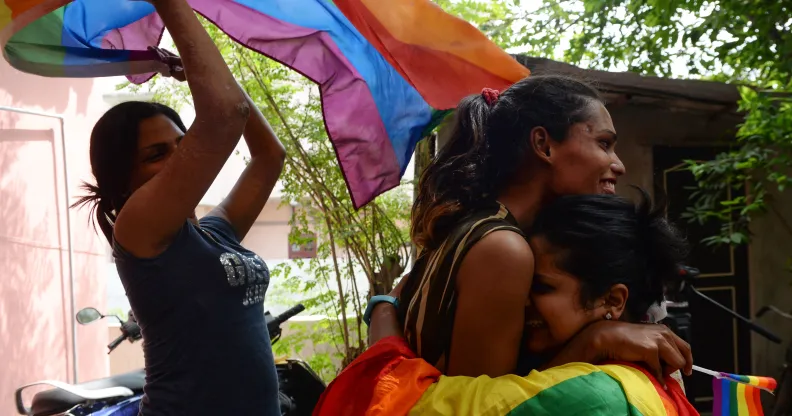
LGBT+ campaigners celebrate the repeal of Section 377, which decriminalised gay sex. (ARUN SANKAR/AFP/Getty)
A lesbian in India whose family made her stay in a mental hospital has won a court battle for the right to live with her partner.
The High Court in Kerala decided that Aruna, 24, has the right to live with her girlfriend of two years just weeks after the country’s Supreme Court decriminalised gay sex.
Aruna’s legal victory, achieved against a family who thought she needed mental help, shows how far India has to come after overturning the 157-year-old colonial law against homosexuality.
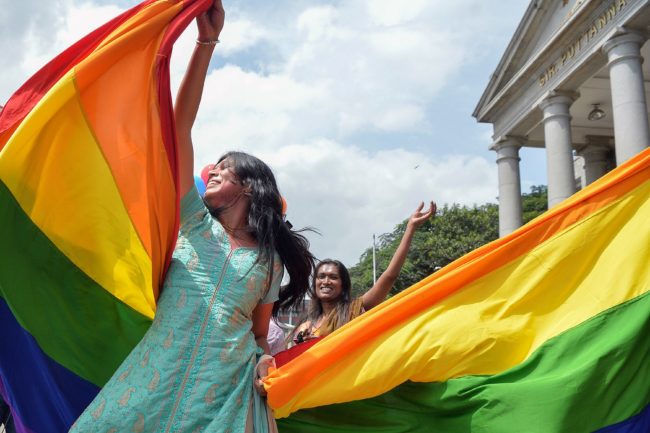
The decriminalisation of gay sex paved the way for this ruling, a lawyer said (MANJUNATH KIRAN/AFP/Getty)
Her partner, S Sreeja, 40, petitioned the court in southern India after Aruna’s family responded to the couple moving in together by reporting Aruna missing, leading the police to detain the 24-year-old and take her away.
A local magistrate heard the missing person’s case, according to BBC News, and released Aruna — but she was reportedly kidnapped by her family outside the court building.
“The court set her free on 14 August. But the minute she came out of the court, she and her partner were manhandled and the younger woman was taken away,” Preetah KK, Sreeja’s lawyer, said.
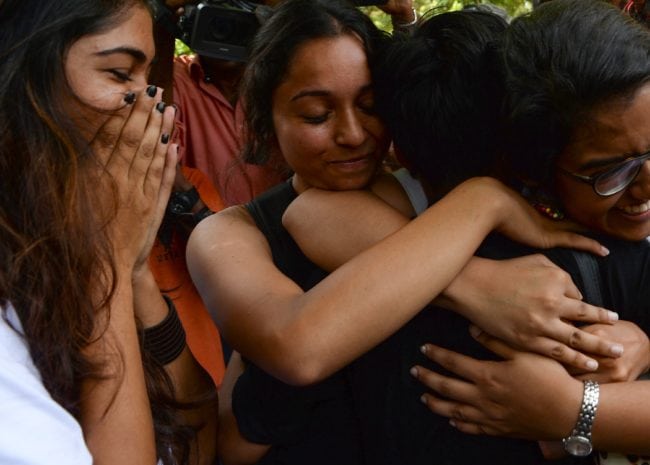
Indian LGBT+ people are free to love whoever they want, but challenges remain (SAJJAD HUSSAIN/AFP/Getty)
“They admitted her to a mental institution in Thiruvananthapuram.”
The High Court accepted Sreeja’s petition and summoned Aruna, where she voiced her wish to live with her partner.
The court ruled in favour of the lesbian couple, with Preetah saying that the unanimous striking down of Section 377 – which sparked celebrations across the country – had made such a decision possible.
“She [Ms Aruna] said that she wanted to go with the petitioner. Based on the Supreme Court verdict, she was allowed to go with the petitioner,” said the lawyer.
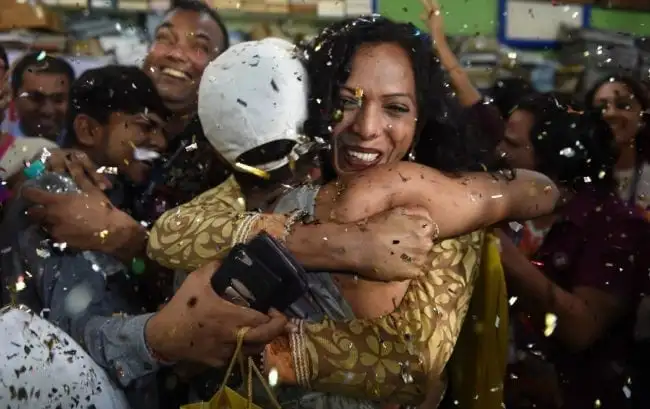
The Supreme Court’s decision was unanimous (INDRANIL MUKHERJEE/AFP/Getty)
Aruna and Sreeja’s case is a glimpse into how many people in India still discriminate against same-sex couples.
In June, lesbian couple Asha and Bhavna Thakor and one of their daughters died by suicide.
The women, who lived in Ahmedabad, wrote in their suicide note that they had “distanced themselves from the world so they could unite, but the world did not let them live.”
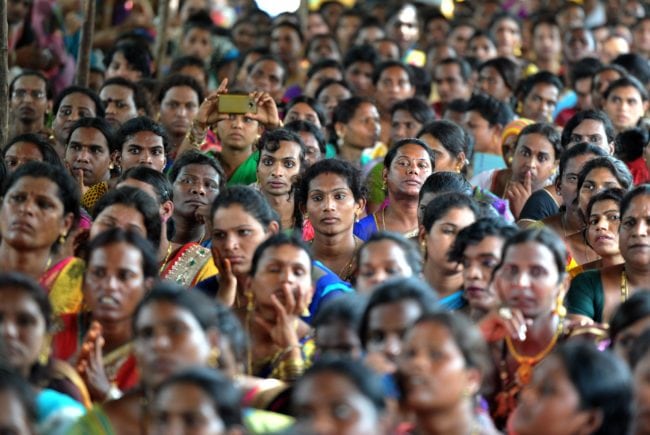
An LGBT+ protest in Hyderabad (NOAH SEELAM/AFP/Getty)
And in March, a school in Kolkata forced 10 female students to sign a letter saying that they were lesbians as a punishment for their “intense friendships” at school.
The girls were told to sign the letter by the acting headmistress at the school after she “received complaints” about their behaviour from other students.
They were then told that they had to write a written admission confessing that they were lesbian and then had to present it to their parents as punishment.

